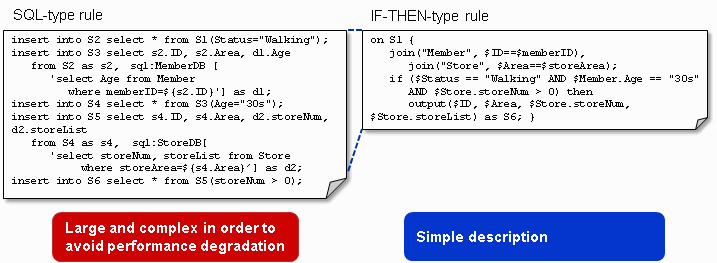Rules must be set in advance in order to execute complex event processing.
This product uses the two description formats below in order to allow rule definitions to be created in a flexible way, according to their purpose.
This format is based on the database query language SQL.
It is suitable for rules with complex conditional branching or event matching processes.
This format uses the "IF (condition) THEN (process)" structure.
It is suitable for rules that are simpler and easier to understand than SQL-type ones - for example, rules that describe processes such as event filtering, or matching and joining events with master data.
This format also allows simple description of processes that, in conventional SQL-type format, tend to become large and complex, since they need to avoid performance degradation that might be caused by costly join operations.
Figure 1.2 Comparison between an SQL-type rule and an IF-THEN-type rule describing a join with master data
